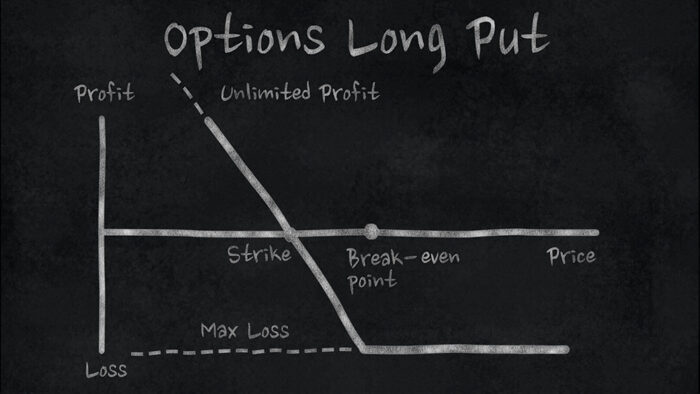Wall Street got less positive on Meta after last quarter’s “thesis changing” report
Meta Platforms (META), the parent company of Facebook, Instagram, WhatsApp, Oculus and other brands, is scheduled to report fourth quarter results after market close on Wednesday, February 1 with a conference call scheduled for 5 pm ET. What to watch for:
EXPECTATIONS:
Last quarter, Meta Platforms reported earnings of $1.64 per share, missing consensus at that time of $1.89, on revenue of $27.71B that missed the $27.38B consensus forecast.
The company said at that time that it expected fourth quarter revenue to be in a range of $30-$32.5B, missing the then-current consensus of $32.31B.
Meta Platforms said: “To provide some context on the approach we are taking towards setting our 2023 budget, we are making significant changes across the board to operate more efficiently. We are holding some teams flat in terms of headcount, shrinking others and investing headcount growth only in our highest priorities. As a result, we expect headcount at the end of 2023 will be approximately in-line with third quarter 2022 levels. We have increased scrutiny on all areas of operating expenses. However, these moves follow a substantial investment cycle so they will take time to play out in terms of our overall expense trajectory… We expect 2022 total expenses to be in the range of $85-87 billion, updated from our prior outlook of $85-88 billion. This includes an estimated $900 million in additional charges related to consolidating our office facilities footprint that we expect to record in the fourth quarter of 2022. We anticipate our full-year 2023 total expenses will be in the range of $96-101 billion. This includes an estimated $2 billion in charges related to consolidating our office facilities footprint. We expect the slight majority of our 2023 expense dollar growth to be driven by operating expenses, with the remaining growth coming from cost of revenue. We expect the percentage growth rate of 2023 operating expenses to decelerate meaningfully as we curtail non-headcount related expense growth and keep 2023 headcount roughly flat with current levels. Conversely, our growth in cost of revenue is expected to accelerate, driven by infrastructure-related expenses and, to a lesser extent, Reality Labs hardware costs driven by the launch of our next generation of our consumer Quest headset later next year.”
Current consensus EPS and revenue forecasts for Meta’s December quarter stand at $2.22 and $31.53B, respectively, according to data provided by Refinitiv. That EPS estimate is down from $2.27, where it stood 90 days ago, Refinitiv data shows. Bloomberg’s adjusted EPS estimate for Q4 stands at $2.95.
RAFT OF DOWNGRADES, RECENT UPGRADES:
In the two days following Meta’s last report, the stock was downgraded by no fewer than five research firms.
On October 27, Morgan Stanley analyst Brian Nowak downgraded Meta Platforms, stating that he viewed Meta’s $69B of capital expenditures over two years and artificial intelligence-driven data center build “as a sign of structurally higher capital intensity.” While these investments could make Meta stronger over five years, its 2023 free cash flow is dropping by 60%, adding higher risk to prove return on invested capital and incremental growth, Nowak told investors at the time. He added that he thought Meta’s “latest results and forward capex guidance are thesis changing and likely to weigh on the shares for some period.”
Meanwhile, Cowen analyst John Blackledge downgraded Meta. The analyst, who cited Meta’s “much higher than expected” spending trajectory for the downgrade, said the company’s metaverse losses should “expand significantly” in 2023. While cost growth is slowing from 2022 levels as Meta stalls headcount growth, the company expects metaverse losses to expand significantly without a clear timeline of returns for investors, stated the analyst, who estimates $21B in metaverse operating losses in 2023 versus the $15B loss run-rate exiting Q3.
KeyBanc analyst Justin Patterson also downgraded Meta to Sector Weight from Overweight without a price target following its Q3 results. Next year’s costs outlook came in “meaningfully higher than expected,” Patterson told investors in a research note. Meta “appears to have limits on how fast it can pull back expenses,” added the analyst. Even with Meta targeting flattish headcount growth, operating expenditures should still increase $13B year-over-year at the midpoint, Patterson noted.
In that time frame, Huber Research analyst Craig Huber also downgraded Meta to Underweight from Overweight and Edward Jones analyst David Heger also downgraded Meta.
On November 7, Itau BBA analyst Thiago Kapulskis upgraded Meta Platforms. Meta’s share price “reflects an extremely bear case, where it would be crazily spending forever while being disrupted by Apple and/or TikTok,” Kapulskis told investors at that time. “Although potential outcomes are very wide, our value-investing toolkit inclines us to try our luck,” wrote the analyst, adding that the “right price has finally come” to buy shares of Meta Platforms.
On December 16, JPMorgan analyst Doug Anmuth upgraded Meta Platforms. The shares were down 65% year-to-date as of that time as Meta has been impacted by Apple (AAPL) privacy changes, TikTok competition, Reels headwinds, heavy hiring and expense growth, an uncertain build-out of the metaverse, and macro pressures, Anmuth told investors. However, heading into 2023, some of these pressures will ease, and most importantly, Meta is “showing encouraging signs of increasing cost discipline,” with “more to come,” argued the analyst. He believed the stock’s valuation at the time of his upgrade was “compelling,” with the shares trading at 12-times his updated 2024 earnings per share estimate of $9.53. Meta is “building the muscle for more sustainable financial discipline” that can help drive further upward earnings revisions, and the risk/reward is attractive at current levels, contended Anmuth in his upgrade note.
On January 31, LightShed Partners analyst Richard Greenfield initiated coverage of Meta Platforms. The firm pointed out that its 2024 GAAP EPS forecast for Meta is “notably above” the consensus 2024 EPS forecast.
COST CUTS:
On November 9, Mark Zuckerberg said in a message to employees that he posted to his Facebook page: “Today I’m sharing some of the most difficult changes we’ve made in Meta’s history. I’ve decided to reduce the size of our team by about 13% and let more than 11,000 of our talented employees go. We are also taking a number of additional steps to become a leaner and more efficient company by cutting discretionary spending and extending our hiring freeze through Q1… While we’re making reductions in every organization across both Family of Apps and Reality Labs, some teams will be affected more than others. Recruiting will be disproportionately affected since we’re planning to hire fewer people next year. We’re also restructuring our business teams more substantially. This is not a reflection of the great work these groups have done, but what we need going forward.”
At that time, Meta Platforms backed its Q4 revenue outlook of $30B-$32.5B and backed its FY22 expense outlook of $85B-$87B. In an associated regulatory filing, Meta said: “We have continued to refine our 2023 expense budget and now expect 2023 total expenses to be in the range of $94-100 billion, lowered from $96-101 billion previously. This includes the previously disclosed $2 billion in estimated charges related to consolidating our office facilities footprint. The updated range reflects our plan to add fewer employees in 2023 than we previously expected as we are significantly slowing our hiring trajectory through the beginning of 2023. We continue to anticipate that Reality Labs operating losses in 2023 will grow significantly year-over-year. In addition, we are updating our 2023 capital expenditures outlook to be in the range of $34-37 billion, narrowed from $34-39 billion.”
Subsequently, Itau BBA analyst Thiago Kapulskis raised the firm’s price target on Meta. The “mounting pressure is finally making META’s management realize that more discipline is needed,” Kapulskis told investors in a research note. The analyst added the view that the layoffs and spending guidance cut announcements were a demonstration that Meta “acknowledges the problem.” If management holds to this new trend, the firm’s upgrade on November 7 “could have truly marked the bottom of the stock,” Itau BBA added.
Meanwhile, Baird analyst Colin Sebastian said there may be investor concerns that Meta Platforms’ 13% reduction in headcount is not enough. While a layoff was broadly expected, the news represented a “significant shift in strategy for a company that prided itself on hiring expensive data scientists, large trust and safety teams, and an increasingly geographically-diverse workforce,” Sebastian said. The changes were mostly included in Meta’s recent expense outlook and represent a “right-sizing” from the significant growth in overhead from before and during the pandemic, according to Sebastian, who kept an Outperform rating on Meta.
REELING:
Following the toughest year in its history, Meta is starting to see a path to recovery, Jeff Horwitz and Salvador Rodriguez of Wall Street Journal said in a report published on January 27, citing internal documents and interviews with people familiar with the matter. Investment in artificial intelligence tools has enabled the company to improve ad-targeting systems to make better predictions based on less data, the interviews and documents show, according to the Journal. That, along with shifting to forms of advertising less dependent on harvesting user data from off its platforms, are key to Meta’s plans to overcome Apple’s privacy change that restricted its capacity to gather information about what its users do on outside platforms, the journalists said.
Reels is “finally beginning to pull in meaningful numbers of viewers” after three years of work, but making money from Reels is “a more complex issue” and whether to relax long-standing opposition to the sharing of ad revenue with creators is an “even bigger debate bubbling inside Meta,” reported The Information’s Sylvia Varnham O’Regan and Kaya Yurieff, citing sources. Meta executives have long been resistant to splitting revenue with creators and former Chief Operating Officer Sheryl Sandberg was “among the powerful opponents of the idea,” according to the report. YouTube, a unit of Google (GOOGL), has long shared revenue with people who upload videos onto the streaming service, the report published on January 31 pointed out.
SENTIMENT:
Click here to check out recent Media Buzz Sentiment on Meta as measured by TipRanks.
—
Originally Posted January 31, 2023 – What Wall Street is saying about Meta ahead of earnings
Disclosure: Interactive Brokers
Information posted on IBKR Campus that is provided by third-parties does NOT constitute a recommendation that you should contract for the services of that third party. Third-party participants who contribute to IBKR Campus are independent of Interactive Brokers and Interactive Brokers does not make any representations or warranties concerning the services offered, their past or future performance, or the accuracy of the information provided by the third party. Past performance is no guarantee of future results.
This material is from The Fly and is being posted with its permission. The views expressed in this material are solely those of the author and/or The Fly and Interactive Brokers is not endorsing or recommending any investment or trading discussed in the material. This material is not and should not be construed as an offer to buy or sell any security. It should not be construed as research or investment advice or a recommendation to buy, sell or hold any security or commodity. This material does not and is not intended to take into account the particular financial conditions, investment objectives or requirements of individual customers. Before acting on this material, you should consider whether it is suitable for your particular circumstances and, as necessary, seek professional advice.




















